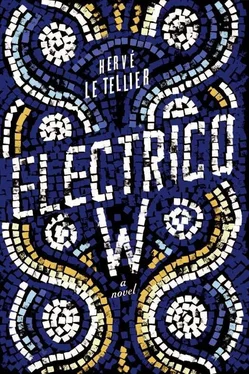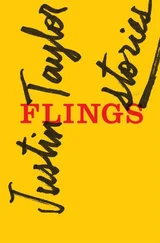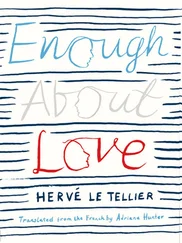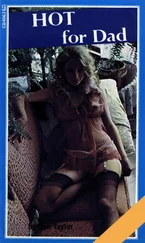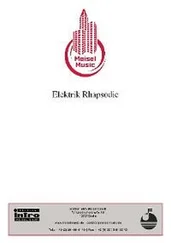It was that night I made my decision. I would put up one last fight, with all the fire and skill typical of serial losers, of people who have gone from one defeat to the next so often that winning no longer means anything to them. The hopeless philosophy of the old, the ugly, and the poor.
I was going to search for Duck, and was going to find her. At some point predetermined by me, Antonio would meet her and I would find a way of rebuilding their lost happiness, I would rewrite fate, I would be their fate. I wanted Irene to come, to be there, in Lisbon so that she could see her ruin; and the city that had brought Tonio and Duck together would be my most faithful ally.
That would be my complete revenge, that wound to her pride, the pain she would feel. I knew I no longer wanted Irene, I would be able to reject her, to say with a smile but without hatred that she meant nothing to me now, and never would again.
But almost immediately, despite my own plans, I also hoped that in that confusion of passions, that muddle of emotions, she would finally conceive some feeling for me. Something unclear at first, but that might one day be like love.
What did Montestrela say about love? “When you’re making it, don’t think about the fact that at that very moment, someone, somewhere, is dying.”

When I returned to the hotel Antonio was still asleep. His jacket was lying on one of the armchairs. I stood there in the silence for a moment. I pulled his wallet from the pocket and took out the photo of Duck. Just a loan, for no more than a few hours, time enough to make a copy.
There was another picture, this one in black and white. Antonio was in it, looking very young, in a group of other young men. It was almost like a class photo. I didn’t want to spend too long studying it. I took it as well. For no reason.
Then I went to bed and fell straight into a deep sleep. Antonio told me later that I snored, and I grimaced my apology. I hate those periods of complete abandon, a languor in which I can picture my flaccid, noisy hideousness, my face on the pillow like a dead jellyfish, my mouth half open, my breath fetid, times when — yet again — I wish I were someone else.

THAT MORNING THE press announced that the Pinheiro trial would begin any day, and I bought every newspaper. Leader writers had reopened their files, reused the photographs of bloodied corpses, recapped the circumstances of each murder. Soon the victims’ families would be put through it all again.
When Pinheiro was arrested, I had written two or three columns about the man they were calling the Mad Killer of Lisbon. They had chosen a photograph of him as a young man with a laughing face and a sailor’s uniform, accompanied by an enticing caption.
When he turned fifty, he changed into a small, thin man with brown hair, a smooth face, and sad, nearly gray eyes. A man with no history, virtually invisible. At the time of his arrest, he had been working as an administrator in the port’s customs offices for more than ten years. An honest, scrupulous employee, well viewed by his superiors, liked by his co-workers, a bachelor not known to have any relationships, no enemies, nor friends in fact. If he ate out in the evening, it was always alone, and when he had lunch in the customs canteen, he took a book from his leather case and never joined in conversations.
Antonio had called the hospital where Pinheiro was incarcerated, and had had little trouble securing an interview with the psychiatric expert. We were to meet him in three days.

IT WAS STILL early when we went down to the port and along to berth 24, drawn by a sound of tortured steel. In berth 13, I noted in my notebook, an old cargo boat with a Russian flag was baring its prow with a fresh three-foot scar in it. A workman balancing on a hanging footbridge was cutting away the dented sheet metal with a circular saw. Sprays of red sparks swirled around him, accompanied by a strong smell of burning and an almost unbearably strident noise. Under his heavy welding mask and thick leather overalls, the man handled the machine powerfully and with such ease that he seemed extraordinarily strong.
Antonio started taking pictures at machine gun speed with his Leica, then thrust the camera at me rather violently.
The telephoto lens shielded the view from the sky’s brilliance, making the scene both more immediate and more terrifying. Against a background of rust and sickening metal, the workman had pride of place among waterfalls of fire, the blacksmith god of lava and volcanoes. I released the shutter, heard its crisp click and the soft whirr of the motor.
I turned slowly and Antonio appeared in the black rectangle. Small red numerals lined up in the viewfinder, right in the middle of his chest. He was standing in profile, his features distorted by the bluish shade of the filthy cargo boat that filled the picture beside him. Coils of rope lay behind him, like sleeping black pythons. Farther away, a giant crane stood out in the sunlight, truncated sharply by the corner of the shot. I took the picture, not sure whether the light levels were good enough.
Antonio came over to me slowly, pointing toward me. His cheek was colored by the electric glow of the sparks, and the wail of the saw drowned out everything. There was something strange or even aggressive about the gesture he was making, and I saw it as a threat, a trap. What did Antonio want from me that I was so afraid of losing, that I hadn’t already lost? I took a step back, penetrated by the chill that precedes a ghostly apparition, panicked by my incomprehensible terror.
Time stretched out and slowed down as it had in childhood nightmares where I was pursued by monsters, where my hopeless stumbling flight got me nowhere, where the vampires and dinosaurs always inevitably caught up with me. Antonio was coming closer, he was smiling, an enemy’s smile. All at once his giant hand hid his face from me. Then his palm covered the lens and everything went red and black.
I staggered. Antonio looked at me, concerned.
“Are you all right, Vincent? You look pale …”
“I need to sit down a minute, I must be overtired. I–I’m not sleeping much at the moment.”
Antonio laughed, winked, gave me a little pat on the shoulder. The friendly physical contact made me shudder.
“I’m feeling better. Let’s go back.”
“No, no, let’s wait for a bit. There, look, how about going over there?”
He was pointing to a large barge with sky-blue sides, a cable’s length from the quay but connected to it by a long narrow footbridge. A bistro terrace had been set up on its deck, with wobbling garden tables, Fanta parasols in faded colors, and, stranded in the middle, a sort of prefabricated yellow workman’s hut. On the quay, an oval sign with rounded blue letters announced STROMBOLI’S, ITALIAN SPECIALTIES.
We were just boarding the barge when a good-natured, bald imp in a white apron sprang from the hut.
“We’re closed, the restaurant’s closed!” The little man ran over to us and stood puffing at the end of the footbridge. “It’s José, he didn’t take the sign down, so you obviously have no way of knowing, but we’re closed — I can’t let you—”
“Be kind,” said Antonio, “my friend’s feeling faint.”
“Faint? Oh …” The fellow moved aside, as if I were contagious. “Well, you are white as a sheet. You must be having an attack of hippopotitis … Don’t move a muscle, okay? I’ll be back …”
Читать дальше
